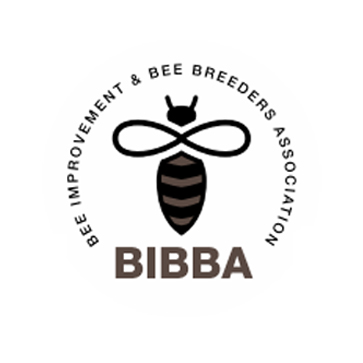Date: 25th May 2021
Reference: NIHBS Statement Against Importing Bees into Ireland
Dear Loretta,
Thank you for the Statement. This is welcome, making complete sense and, if adopted, will go a long way to preventing the introduction of pests, diseases and pathogens that will have a seriously damaging affect on both managed and free-living honey bee populations. It will also reduce the harm done by mongrelisation experienced in the UK for many years.
The Bee Improvement and Bee Breeders Association (BIBBA) was formed in 1964 with members in UK and Ireland. Owing mainly to concerns about the importation of honey bees and queens, membership is fast growing, currently approaching 1,000. BIBBA supports and promotes the sustainable conservation, restoration, study, selection, and improvement of the European Dark Honey Bee (Apis mellifera mellifera) which is native to Ireland, UK andNorthern Europe; we fully support the “Statement Against Importing Bees into Ireland”.
BIBBA has a long track record of opposing the importation of bees into any part of the UK or into Ireland. Some of the reasons are: –
- The Irish population of Amm is considered by scientists to be one of the best remaining and a good genetic resource that should be preserved.
- Honey bee queens mate on the wing with whatever drones (males) are flying in the area, whether native or exotic.
- Queens usually mate with 10-15 drones. If partner drones are of mixed origin, th resulting colony will be mongrelised, even though the queen may be pure Amm.
- Random cross-breeding in this way is known to result in colony aggression in a significant number of cases. This is termed “F2 Aggression” and may cause problems to the general public, as well as to beekeepers.
- Imported bees have evolved in warmer conditions, so are less suited to a cool damp climate, being less hardy and more prolific, making them susceptible to heavier losses both summer and winter
- Free-living colonies in the UK, even though mongrelised, display characteristics of Amm, suggesting that imported types don’t live long unmanaged. Managed colonies are often given more protection and medication to aid their survival
- Constant imports into Scotland, Wales and England have resulted in heavy mongrelisation that have caused long-term problems for beekeepers by diluting the genetics of the managed bee population.
- This genetic dilution has also affected the free living (wild) populations.
- Tropilaelaps is a bee pest (similar in behaviour to varroa) that, although not thought to have arrived yet, is only likely to be imported on bees. Scientists state it is a far more serious threat than varroa.
- Small Hive Beetle (SHB) is currently in Italy. All efforts to eradicate it there have failed. It is most likely to be imported on bees. One major problem with SHB is that it defecates in honey, making it unfit for human consumption.
BIBBA supports the call for a legal ban on imports into Ireland. This would provide a similar level of protection for the native Irish honey bee as that afforded by the Slovenian Government to its native honey bee. It will also prevent Northern Ireland from being used as a staging post for imports of package bees into mainland UK, that will expose the whole Irish honey bee population to the threat of introduced pests forever. BIBBA wishes NIHBS well in your efforts to greatly reduce the threat to bees and beekeeping in Ireland.
Best wishes.
Roger Patterson.
President. BIBBA.


